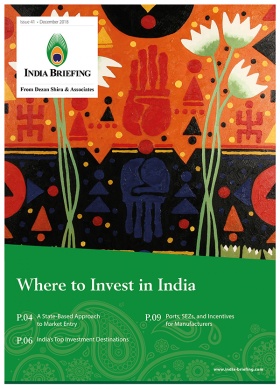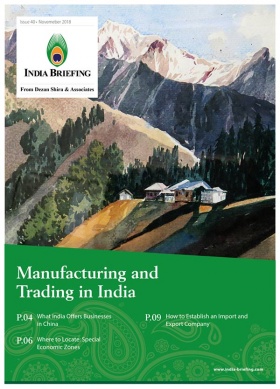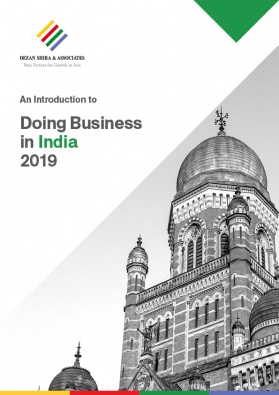Plastic Ban in India – the Business Impact of State Specific Regulations
India’s plastic ban across more than half of its states has businesses scrambling for cost effective responses.
Businesses in food, drink, retail, and e-commerce industries are set to be the most affected by the changes in legislation regarding single-use plastics due to their heavy use in packaging.
In e-commerce, for instance, packaging charges comprise about two to three percent of fulfilment costs – the price of delivery, shipping, and compensating sellers for discounts. Switching to other alternatives means investing in new machinery and pushing these costs higher.
For the food processing industry, leaving plastic, or switching to alternatives, also runs the risk of worsening other ills such as food spoilage.
To minimize the impact of the ban on businesses, most states in India currently offer exemptions. However, exemptions vary by state, and as more states in the country are likely to adopt plastic ban, companies need to prepare for a regulatory environment that will likely entail tighter legislation and enforcement, impacting production, packaging, and supply chains in the future.
Here, we look at the rules, exemptions, penalties and other details about the plastic ban introduced in India’s major states.
Plastic ban in Indian states
In 2009, Himachal Pradesh became the first state to ban plastic and polythene shopping bags in India. In intervening years, over 25 states have instituted similar measures – restricting the use of one form of plastic or another.
The capital city, Delhi, banned all forms of disposable plastics including bags, cutlery, cups, plates and other single-use items in 2017, whereas the southern state of Karnataka imposed a complete ban on single-use plastic items in 2016.
Some states such as Goa and Gujarat have also introduced partial bans in areas surrounding religious, historic or nature sites.
Joining these states, Bihar, Maharashtra, Odisha, Tamil Nadu, and Uttarakhand are the latest to announce a ban on certain types of plastic this year.
Bihar
The state of Bihar recently introduced a complete ban on the manufacture, import, storage, distribution, transportation, sale and use of plastic carry bags (irrespective of their size and thickness), in its urban cities, from December 14.
This includes a prohibition on shopkeepers, vendors, wholesalers, retailers, traders, as well as hawkers from keeping, selling, distributing or using plastic carry bags for storing or dispensing edible or non-edible goods within the state jurisdiction.
Exemptions: The state government has exempted the use of plastic bags above 50 microns thickness for collection, storage, and disposal of biomedical waste, plastic containers used for raising plants in nurseries and for dairy products packaging.
Penalty: The penalty includes a fine that may extend up to Rs 100,000 (US$1,422), or imprisonment that may extend up to five years, or both.
Maharashtra
Maharashtra has banned the use, manufacture, transport, wholesale and retail sale and storage, import of plastic bags, and disposable products made out of plastic and thermocol for decoration purposes
Other banned items include plastic bags with a handle and without handle, disposable cups, and plates, spoons, forks, glasses, and containers. The state also restricts the use of plastic straw, non-woven polypropene bags, pouches and any other plastic used to store, package and transfer food items.
Exemptions: The exempted products include plastic used for packaging medicines and drugs, the plastic used at the manufacturing stage or for handling solid waste, plastic bags used for exporting goods, food grade virgin plastic used for packaging milk, and compostable packaging bags used for horticulture and agriculture purposes
Penalty: Penalty for manufacturing and selling banned plastic items includes fines of up to Rs 25,000 (US$360) and jail terms of up to three months.
Odisha
Odisha barred the use of plastic in six of its cities – Berhampur, Bhubaneswar, Cuttack, Rourkela, Puri, and Sambalpur – from October 2 this year.
The ban prohibits the use of polythene sheets less than 50 microns in thickness for storing, transporting, dispensing or packaging food items, consumables, milk and milk products, and edible oil.
Exemptions: There is no ban on polythene packaging materials used in plant nurseries, horticulture, agriculture and healthcare sector like medicines, blood transportation bags, syringe, sample or specimen bags, re-sealable bags, medical instruments and accessories, polythene more than 50 micron, water bottles of more than 500 ml capacity, thermocol used for transportation of electronic goods, as well as packing materials used for wrapping of any items at manufacturing stage.
Penalty: Those violating the order will undergo a five-year jail term with a fine of up to a maximum of Rs. 100,000. The state has also decided to introduce a penalty provision of Rs. 2,000 to 3,000 (US$28 to 42) for small traders.
Tamil Nadu
Tamil Nadu has announced its intention to ban the manufacture, sale, storage, and use of disposable plastic from January 1, 2019.
The ban primarily covers the use of plastic carry bags, plastic plates, plastic cups, plastic flags, small plastic sachets used in packaging water, among others. Exclusions, however, apply for milk, curd, oil, and medicine packaging.
About Us
India Briefing is produced by Dezan Shira & Associates. The firm assists foreign investors throughout Asia and maintains offices in China, Hong Kong, Indonesia, Singapore, Vietnam, and Russia.
Please contact india@dezshira.com or visit our website at www.dezshira.com.
- Previous Article La tarjeta Aadhaar: ahora prueba obligatoria de identificación
- Next Article 印度外商投资、营商指南 2018-2019版已发布









